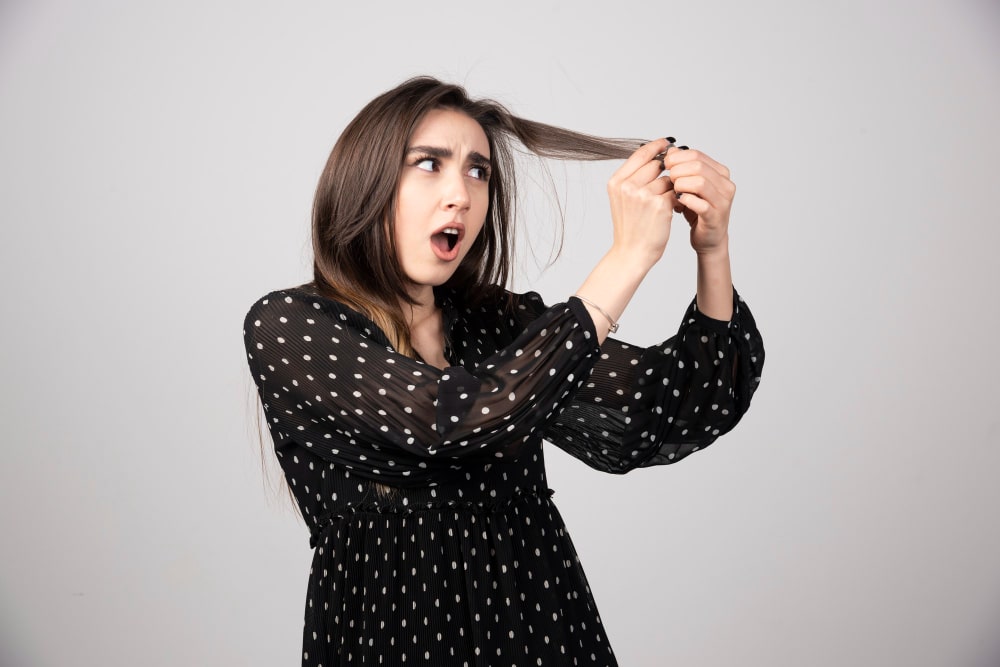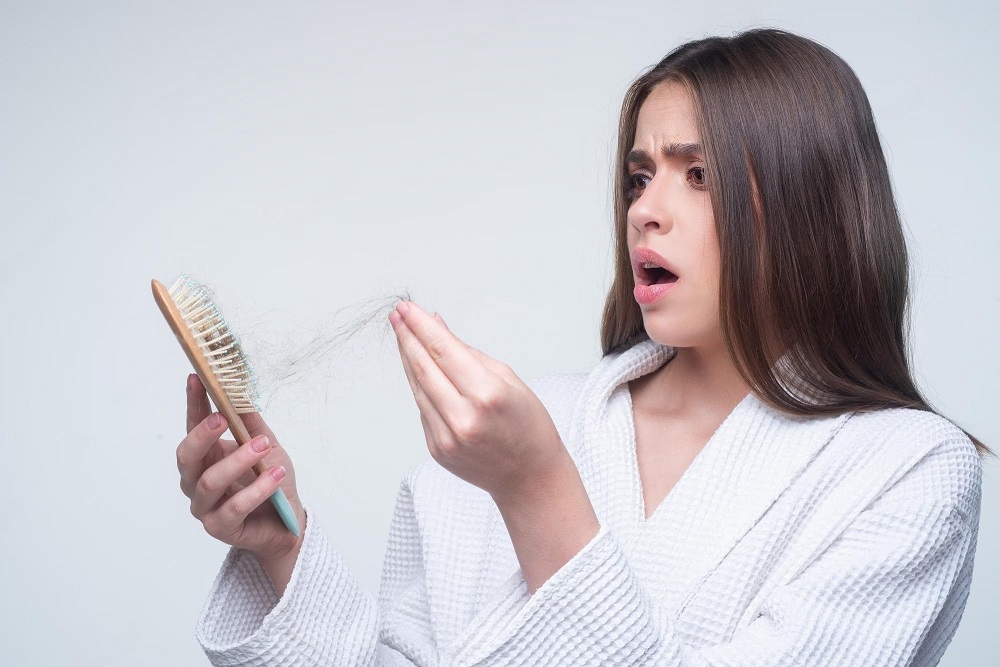Selenium is an essential mineral important for the proper functioning of the body. It can be found in various foods, such as nuts, grains, and seafood. A deficiency in Selenium has been linked to many health issues, including hair loss. Hair loss affects both men and women and can be caused by several factors. Interestingly enough, Selenium can cause hair loss—but it depends on how much you have or lack of it in your system. In this article, we will explore the connection between selenium and hair loss, the benefits of Selenium for hair health, potential causes of hair loss unrelated to Selenium, symptoms that may occur from selenium deficiency, how to treat a selenium deficiency, and finally some tips for promoting hair health.
1. What is Selenium?
Selenium is an essential mineral for the human body that helps to protect cells from damage and keeps them healthy. It also plays a role in many bodily processes, such as metabolism, reproduction, and immune system function. Additionally, Selenium has been linked to hair health since it acts as an antioxidant which helps to protect cells from damage caused by free radicals.
Overview of Hair Loss
Hair loss is a typical problem for many people. It can cause by various factors, including age, genetics, hormonal imbalances, stress levels, lifestyle choices, medical conditions and more. It can often lead to insecurity and lack of self-esteem due to its visible effects on appearance.
The connection between Selenium and Hair Loss
Studies have shown that Selenium may be important in improving hair health and preventing hair loss. It has been suggested that selenium deficiency may contribute to thinning hair or alopecia (hair loss), as it is an essential mineral for many metabolic processes related to hair growth. Selenium is thought to help stimulate keratin production, a protein that makes up our hair and skin.
Read More: Diabetes Hair Loss: Causes, Symptoms, Treatment options, FAQs
2. Benefits of Selenium for Hair Health
Promote healthy hair growth and maintenance
Selenium can play an important role in improving hair health by promoting strong and healthy hair growth. It also acts as an antioxidant which helps protect cells from damage caused by free radicals, assisting in the repair process of damaged cells. Additionally, Selenium helps to improve blood circulation to the scalp, leading to increased delivery of oxygen and nutrients necessary for proper cell turnover.
Nutritional benefits
It has been suggested that Selenium may help improve the overall health of hair follicles, leading to thicker and healthier hair. It also helps to reduce inflammation in the scalp, preventing dryness and irritation.
Potential side effects
Although beneficial for our overall health, too much Selenium can adversely affect our bodies, such as nausea, vomiting and diarrhoea. Additionally, it is important to note that taking more than the recommended daily dosage can cause toxicity symptoms such as skin rashes and hair loss.
Recommended daily dosage range
The recommended daily allowance (RDA) for Selenium is 55 micrograms per day for adults over 19. However, it is important to speak with your doctor or healthcare provider before taking any supplements, as they can help you determine the appropriate dosage for your individual needs.
3. Causes of Hair Loss unrelated to Selenium
Age-related hair loss is a common cause of hair thinning or balding in both men and women, usually due to hormonal changes. This type of hair loss is generally permanent and cannot reverse. However, certain treatments, such as Rogaine (minoxidil), may help slow down the rate of hair shedding in some cases.
Hormonal imbalances/conditions like PCOS, thyroid disease, etc.
Certain medical conditions, such as polycystic ovarian syndrome (PCOS) and thyroid disease, cause hair loss due to the hormonal imbalances that occur with these conditions. Additionally, pregnancy or taking certain medications can also lead to temporary episodes of hair shedding due to hormone fluctuations.
Stress and lifestyle factors such as poor diet, inadequate rest, etc. Stress and lifestyle factors like poor diet or inadequate rest may also contribute to hair loss as they can interfere with the body’s ability to produce healthy hair cells or follicles. Additionally, over-styling or harsh chemical treatments on the scalp can weaken hair strands and lead to breakage or thinning.


Read More: Hair loss on legs: Causes, Suggestions & Treatment
4. Symptoms That May Occur From Selenium Deficiency
Common symptoms
The most commonly reported symptoms of selenium deficiency include
- Fatigue
- Muscle weakness
- Poor concentration
- Cognitive decline
Other possible symptoms are hair loss or changes in hair texture, such as dryness or brittleness.
How to know if you are deficient in Selenium
To determine if you may be deficient in Selenium, it is important to speak with your doctor or healthcare provider, who can perform a blood test to measure levels of this mineral in the body. Additionally, consulting with a qualified nutritionist can help you identify any dietary deficiencies contributing to low selenium levels.
Does selenium deficiency cause any home remedies for hair loss
Some natural remedies may help reduce hair loss due to selenium deficiency. These include massaging your scalp with essential oils like rosemary or lavender, eating a diet rich in vitamins and minerals, and using natural herbal remedies such as saw palmetto or stinging nettle extract. Additionally, it may be beneficial to reduce stress levels and practice relaxation techniques such as yoga or meditation.
5. Prevention and Treatment Options for Hair Loss
Maintaining a healthy diet
Eating a balanced diet rich in vitamins, minerals, and protein is essential for maintaining healthy hair. Foods such as lean meats, fish, eggs, nuts, fruits and vegetables are all excellent sources of Selenium and other nutrients that help to promote strong hair growth. Additionally, it’s important to stay hydrated by drinking plenty of water throughout the day, as dehydration can lead to dryness or breakage.
Reducing stress levels
Managing stress levels can also benefit hair health, as excessive stress can interfere with the body’s ability to produce healthy cells. Setting aside time for activities such as yoga, meditation, or engaging in hobbies that help you relax can help reduce stress levels and thus improve hair health.
Using products to treat thinning hair
There are a variety of products available on the market designed specifically for treating thinning hair, such as shampoos, conditioners, scalp treatments and other topical solutions. However, it is important to speak with your doctor before using any over-the-counter treatment, as some ingredients may not be suitable for certain individuals and could cause further damage to the scalp or skin.
Conclusion
In conclusion, it is important to understand the potential role of Selenium in promoting healthy hair growth and maintenance. Although a lack of Selenium can cause to hair loss, many other factors may also be responsible for thinning or balding. Maintaining a balanced diet, reducing stress levels, and using quality products designed specifically for treating thinning hair are all key strategies that can help promote healthy hair growth. It is always best to consult with your doctor or healthcare provider before taking any supplements, as they can advise you on the appropriate dosage and any potential side effects.
FAQs
Here are some FAQs for Can Selenium Cause Hair Loss;
A: The recommended daily allowance (RDA) for Selenium is 55 micrograms per day for adults over 19. However, it is important to speak with your doctor or healthcare provider before taking any supplements, as they can help you determine the appropriate dosage for your individual needs.
A: Taking more than the recommended daily dosage can cause toxicity symptoms such as skin rashes and hair loss. Additionally, it may also lead to nausea, vomiting and diarrhoea. It is important to note that some individuals are more sensitive to Selenium than others, so it is important to consult with your doctor or healthcare provider if you experience any adverse reactions.
A: Selenium deficiency has been linked to hair loss and changes in hair texture, such as dryness or brittleness. To determine if you may be deficient in Selenium, it is important to speak with your doctor or healthcare provider, who can perform a blood test to measure levels of this mineral in the body. Additionally, consulting with a qualified nutritionist can help you identify any dietary deficiencies contributing to low selenium levels.
A: The best way to ensure you are getting enough Selenium is by eating a balanced diet that is rich in sources such as lean meats, fish, eggs, nuts, fruits and vegetables. Additionally, it may be beneficial to take a multivitamin or mineral supplement to ensure you are meeting the recommended daily allowance (RDA) for this essential nutrient.

